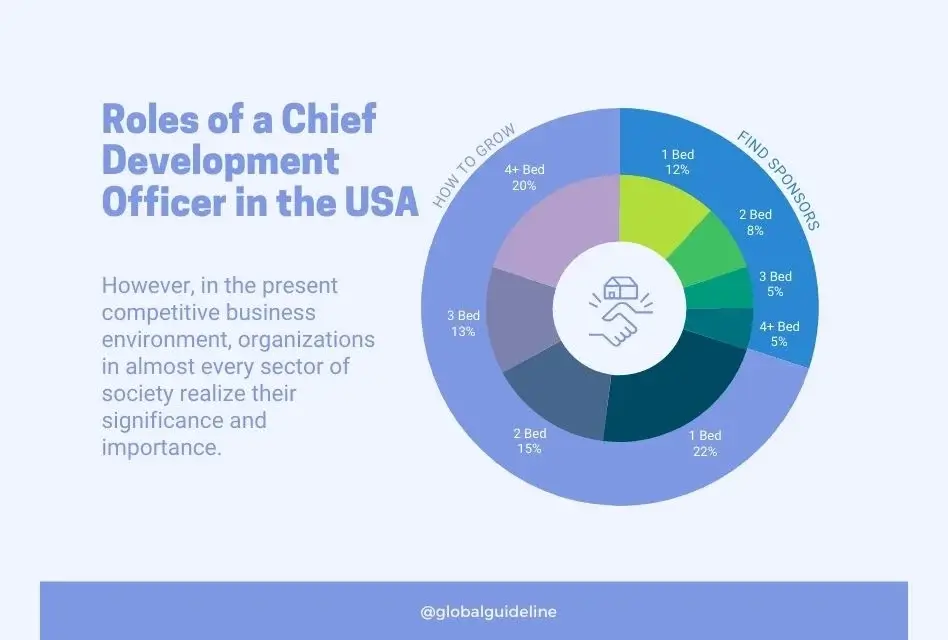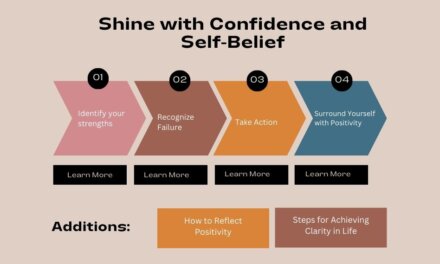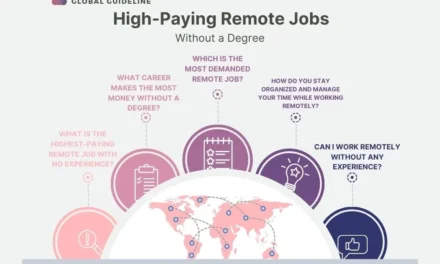However, in the present competitive business environment, organizations in almost every sector of society realize their significance and importance. The Chief Development Officer is a key executive position that drives growth, innovation, and long-term success in nonprofit, real estate, biotech, and many other industries.
This article will cover the top 10 roles of a Chief Development Officer in the United States by depicting their responsibilities, career trajectory, and the significance of this position as the head of an organization. Then some core points that revolve around the main dilemmas like Chief Development Officer vs. Chief Executive Officer (CEO) and Chief Development Officer vs. Chief Operating Officer (COO), and how that detailed understanding on this role will be covered.
Table of Contents
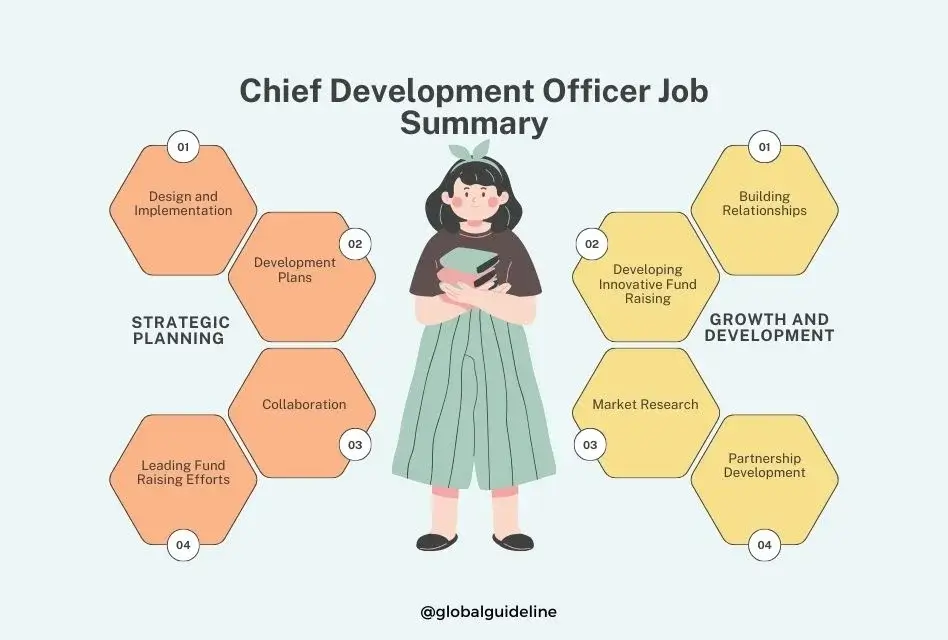
Chief Development Officer Job Summary
The Chief Development Officer is an integrated position, consisting of several different roles that are required for the growth and development of an organization. The general function of the CDO is to design and execute development strategies based on the organization’s goals.
1. Strategic Planning for Growth and Development
A critical job responsibility of a Chief Development Officer includes heading strategic planning processes. These involve:
- Design and Implementation: Long-term planning to support the mission and vision of the organization.
- Development Plans: Detailed plans of development that involve raising funds, business expansion, and entry into new markets.
- Collaboration: Other associates in the leadership team such as the CEO and COO will need to be brought on board in to achieve the entire business objectives.
With all the potential strategies that the CDO can develop and implement for this company at such a high level of decision making, there’s nothing else to do but say this position is indispensable.
2. Fund Raising and Resource Development
A CDO in different organizations especially the nonprofit ones will perform a number of critical activities, namely raising and developing resources, including:
- Leading Fund Raising Efforts: Planning and conducting activities that result in fund-raising and raise the profile of the organization at the same time.
- Building Relationships: Developing donors, investors, and key stakeholders partnerships.
- Developing Innovative Fund Raising: Identifying new and innovative ways to raise funds, such as online campaigns, grant writing, and corporate partnerships.
In a nonprofit setup, the role of the CDO in fundraising becomes pretty critical for the sustenance of the organization.
3. Business Development and Growth
A Chief Business Development Officer, in turn identifies new business prospects and gives momentum to growth. In most cases, this duty is associated with the role of the CDO. For most for-profit organizations, the boundary between them may not be strictly defined as such. Critical activities include:
- Market Research: Conducting in-depth market studies to map out new avenues for growth.
- Partnership Development: Develop strategic partnerships targeted to achieve the goals and vision of the organization.
- Product and Service Expansion: Spearheads efforts to grow and increase the organization’s product or service lines.
The capacity for business growth drives one of the core functions of the CDO, particularly in competitive markets like real estate and biotech.
4. Leadership and Team Development
A top-level executive, the CDO is tasked with the leadership and development of the development team. These include:
- Team Building: Recruit and develop the members of the team to have the skill set required and the resources to be effective.
- Performance Management: Set performance goals and monitor them for regular improvements to satisfy the objectives envisioned by the team.
- Leadership Development: Identify and train up-and-coming leaders within the development team.
The leadership skills of the CDO go a long way in creating a very solid cohesive team that can execute the development strategies of an organization seamlessly.
5. Communication and Stakeholder Engagement
Effective and efficient communication is one of the major tasks that majorly falls under the shoulders of the CDO. This involves:
- Internal Communication: All the people within the organization must be aligned to the direction of development and strategies of the organization.
- External Communication: Spokesperson of the organization. Interacts with the various external stakeholders, such as donors, investors, and the media.
- Crisis Communication: The communication during a crisis, thus ensuring that there is clarity and consistency on the part of the organization.
As such, a CDO must communicate effectively in order to establish trust as well as maintain good and healthy relationships with different stakeholders.
6. Financial Accountabilities and Budget Control
The CDO manages and oversees the health of organizations’ financial books in regard to developmental activities. He is responsible for:
- Budgeting: Preparing and managing budgets for developmental programs and projects
- Financial Reporting: Preparing periodical financial reports and statements to the leadership team and board of directors.
- Resource Allocation: Ensuring that these resources are adequately used in achieving the strategic objectives of the organizations.
Given that the activities undertaken toward achieving the development objective are often to be deemed effective and financially sustainable, financial acumen is an essential skill for a CDO.
7. Innovation and Technology Integration
The CDO, in the contemporary digital world, must be an advocate of innovation and technology. This includes:
- Embracing new technologies. This means identifying and implementing new technologies to enhance development work, such as CRM systems or fundraising platforms.
- Innovation Strategies: Developing an innovation-friendly psyche within the development team, encouraging members to seek innovative solutions for developing organizational goals.
- Data-Driven Decision Making: The use of data and analytics in making strategic decisions and even judging how well development projects are working.
Well, innovation is an inevitability in keeping up with the pace, and it’s the CDO who can spearhead the change in technology in an organization.
8. Laws and Compliance and Risk Management
The CDO often has to ensure that development work in the organization is compliant with the various laws and regulations. This includes:
- Compliance Monitoring: Updating on amendments in the regulations that affect the development activity such as fundraising law.
- Risk Management: Identifying various risks and developing a strategy to mitigate them to ensure the organization works within the legal and ethical confines.
- Ethical Standards: Inculcating and promoting ethical standards in all the development activities to help preserve the organizational integrity and reputation.
Regulatory compliance and risk management are key roles of the CDO, especially in highly regulated sectors like pharma and biotech.
9. Professional Development and Career Advancement
A CDO candidate should know about the goals of a Chief Development Officer. The main goals include:
- Gain Experience: Bring a track record of success in development activities, such as fundraising, business development, or strategic planning.
- Leadership Skills: Developing powerful leadership and communication skills, an important requirement for managing teams and interacting with stakeholders.
- Continuous Learning: Keeping track of the latest industry trends, technological developments, and development best practices.
Attainment of the above objectives could mean a stepping stone to executive role positions, including but not limited to CEO and COO.
10. Advocacy and Public Relations
Finally, the CDO often serves as an organizational advocate: communicating the organization’s mission and vision to the public at large. This includes the following:
- Public Relations: Building media relations and outreach; creating public awareness of work done and accomplishments.
- Advocacy Efforts: Advocacy campaigns that fit with the organization’s mission, affect change in public policy, and shape public opinion.
- Community Engagement: Building and continuing relationships with community leaders, organizations, and stakeholders to help bring attention to the organization and its work.
Advocacy and public relations are also built into the role of a CDO, primarily in nonprofit sectors, where cultivating attention and support is important.
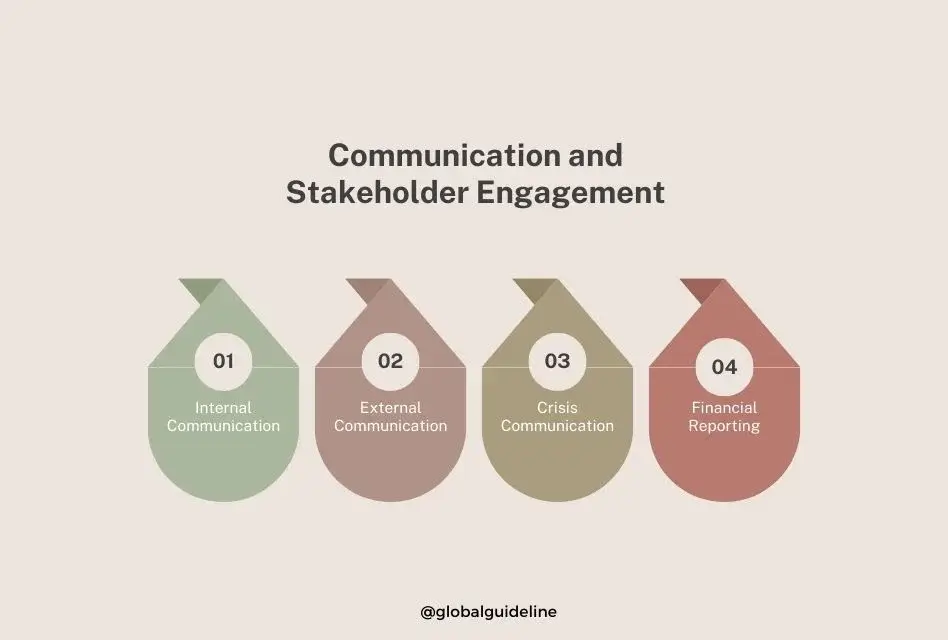
What’s the Difference Between a CEO and Chief Development Officer?
Understanding the difference between the CEO and a CDO will enable anyone to appreciate the specific role of a CDO in any organization. Even though they are reportedly members of the same leadership team, these roles differ significantly:
- CEO: This is the head-ranking executive who oversees the running and direction of the organization. He commands and reports to the board of directors.
- CDO: The CDO is more focused on development, which can include fundraising, business growth, and strategic partnerships. Hence, the CDO is reporting directly to the CEO and collaborates closely with other executives in furthering the execution of the organizational development objectives.
Chief Development Officer vs. Chief Operating Officer
The COO and the CDO collaborate very closely, but their responsibilities often differ from one another:
- COO: The COO will oversee the day-to-day operations of the organization, meaning that business processes are going to be very smooth and efficient. To some extent, really, the COO is responsible for implementing the strategy; the CEO and CDO actually designed it.
- CDO: More focused on long-term growth and development in identifying expansion opportunities and driving strategic initiatives.
Chief Development Officer in Various Industries
It can also significantly vary in terms of sector. Here’s how the role of a CDO might differ by sector:
- Chief Development Officer Nonprofit: The CDO would have a very significant development role, particularly in fundraising, donor relations, and advocacy efforts that support the mission.
- Chief Development Officer Real Estate: Primarily focused on the identification of new development opportunities, securing funding, and managing investor relationships.
- Chief Development Officer Pharma/Biotech: This position includes driving innovation, raising money for a research and development project, as well as overcoming regulatory hurdles.
Chief Development Officer Job Interview Questions
In interviewing for the role of CDO, examine the candidate’s leadership but also their innovative capacities. Here are some job interview questions to help guide you:
- Can you tell me about a successful fundraising effort that you directed? How did you approach it?
- Please describe your approach to long-term growth strategic planning?
- Please tell me about your experience managing a development team?
- How do you stay current with what’s going on in the industry? How do you know you are up to date on best practices in development? Where do you find that kind of information?
- Please describe challenges you faced in previous development roles and how you overcame them?
FAQ: Frequently Asked Questions Regarding Chief Development Officer Positions
What is chief developer officer in corporation?
Chief Developer Officer heads the development of strategic initiatives that will drive growth and ensure long-term success for the organization.
What does chief organizational development officer do?
The Chief Organizational Development Officer oversees organizational development, which includes leadership development, team building, and organizational change management.
What is a development officer?
A development officer is responsible for raising funds, establishing donor relation, and resource development that would support the organization’s mission and goals.
What does a chief business development officer do?
A Chief Business Development Officer is meant to look for new business opportunities, strategic partnerships, and revenue growth.
What is the difference between CEO and chief development officer?
The CEO manages the general organization, while the CDO focuses on development issues, for instance, in relation to fund-raising, business extension, and strategic planning.
What are the career objectives of a chief development officer?
A CDO’s careers objectives include experience in development work, leadership skills, and keeping abreast of industry trends.
How much does a chief development officer earn?
It depends on the industry, organization size, but mostly it is a high-level executive position and thus can offer very attractive pay.
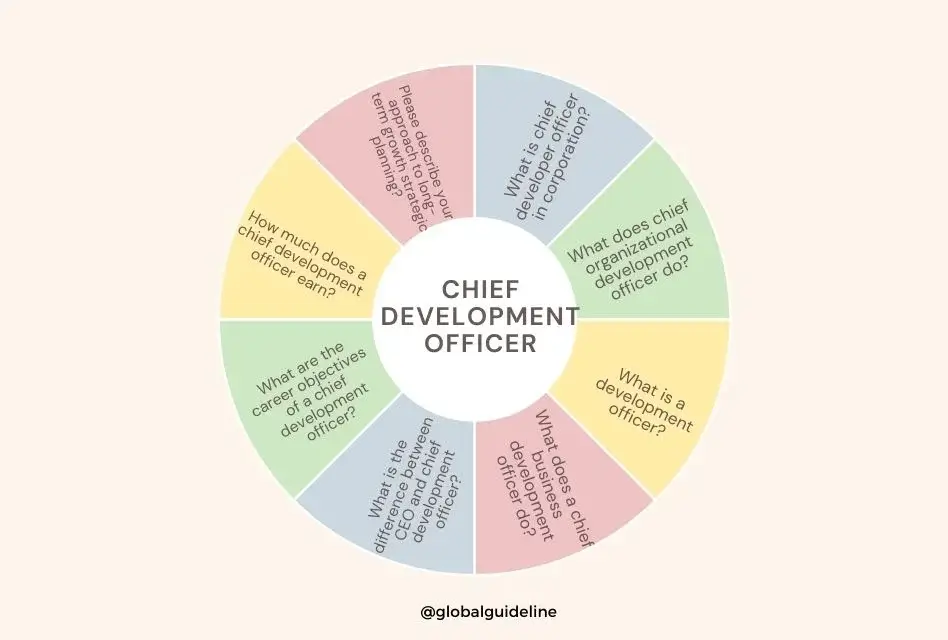
Conclusion
Any organization, whether nonprofit, real estate, biotech, or any other industry, needs a Chief Development Officer. This includes organizations that have a chief development officer who helps design strategic plans and drives business development while maintaining strong stakeholder relationships in charge of keeping an organization poised for long-term growth and success.
Hence, it is imperative that any individual looking to become a CDO or one who already holds the position must be clearly aware of the differences in expectations and responsibility it holds with others executive or officer positions such as that of the CEO and the COO. As the business models advance, the importance of the CDO will grow and consequently increase the USA’s demand for the position.
Being a CDO is such a challenging role, yet it requires significant attention to key career objectives, such as acquiring relevant experience, leadership skills, and staying updated about trends in the market.
Related Topic:
Does Anyone Regret Not Working Harder? 5 Stories That Will Inspire You
3 Exciting City Colleges of Chicago Careers You’ll Love
What Are 5 Effective Strategies to Stay Motivated and Keep Up the Good Work?

